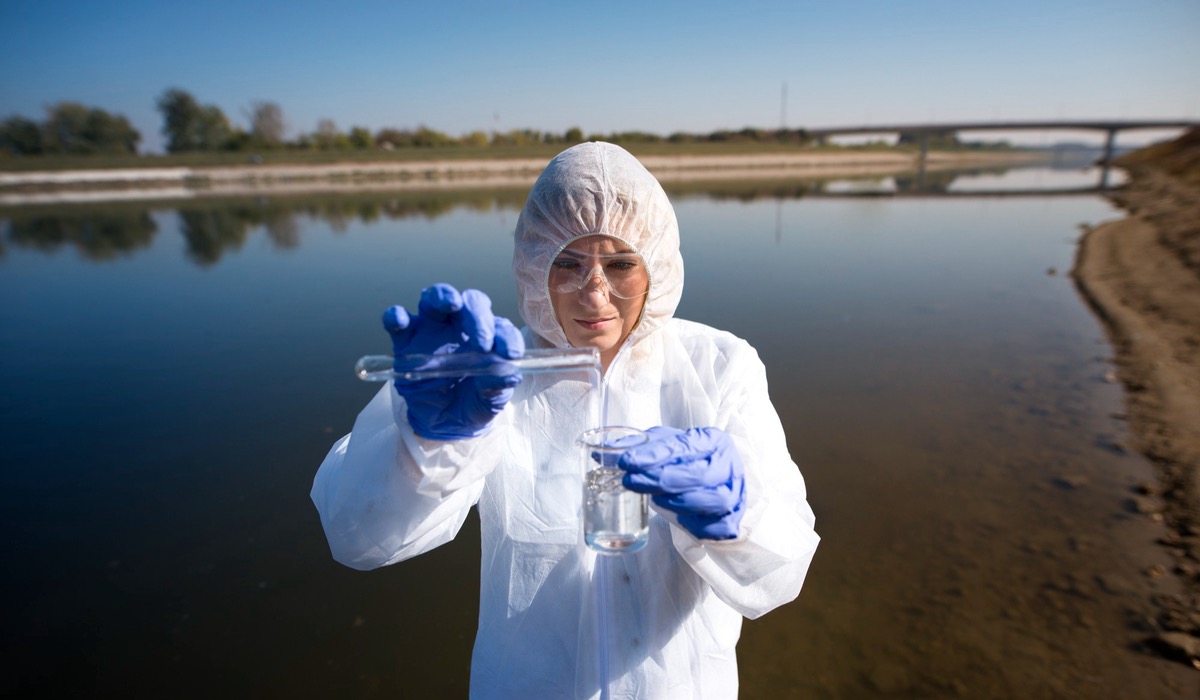If you are looking for a rewarding, challenging, and diverse career, you might want to consider becoming an Environmental Health Officer (EHO). EHOs are professionals who are responsible for implementing, monitoring, and enforcing environmental health regulations in a specific area. They ensure that businesses, organizations, and individuals comply with laws and standards regarding food safety, waste management, water quality, and air pollution.
This article will explore what an Environmental Health Officer does, what skills and qualifications they need, what challenges they face, and what salary they can expect. By the end of this post, you will better understand the role of an Environmental Health Officer and whether it is a suitable career choice for you.
Table of Contents
What Does an Environmental Health Officer (EHO) Do?
The daily work of an Environmental Health Officer is diverse, and tasks can vary from one moment to the next depending on the type of business or property in question. EHOs can be employed by both the private and public sectors. They are responsible not only for inspecting premises for risks but also have an obligation to take action if a health and safety breach has occurred.
Here are just some of the main areas where an Environmental Health Officer has responsibility:
- Food safety: Environmental Health Officers conduct inspections of food establishments to ensure compliance with food safety regulations and standards; this might involve checking food storage facilities, kitchen areas, and food preparation processes. They also respond to complaints about suspected food poisoning or unsanitary conditions at restaurants or cafes.
- Housing: Environmental Health Officers respond to complaints about environmental health issues in residential properties, such as unsanitary conditions, improper ventilation, heating, or fire safety. They also inspect rented properties for compliance with housing standards and regulations.
- Workplace safety: Environmental Health Officers respond to complaints related to environmental health issues in workplaces, such as improper handling of hazardous materials, accidents at work, or exposure to toxic substances. They also inspect workplaces for compliance with health and safety regulations and standards.
- Pollution: EHOs monitor and control environmental pollution in their area, such as air pollution, water pollution, noise pollution, or waste management. They also investigate and respond to incidents of toxic contamination or environmental damage.
- Pest control: EHOs inspect premises for signs of pest infestation, such as rats, mice, cockroaches, or bed bugs. They also advise on pest prevention and control measures.
In addition to these responsibilities, Environmental Health Officers also provide advice and guidance to businesses and the public on environmental health and safety matters; keep up-to-date with changes in environmental health legislation and regulations; prepare reports and present findings and recommendations to management; collaborate with other agencies and organizations to promote environmental health and wellbeing; and conduct research and gather data to monitor trends and patterns in environmental health.
What skills and qualifications do you need to become an Environmental Health Officer (EHO)?
To become an Environmental Health Officer, you will need a combination of skills, qualifications, and experience. Here are some of the main requirements:
If you find article useful, don't miss out on the valuable insights and information available in our other related posts:
- Education: You will need a bachelor’s degree or higher in environmental health or a related field from an accredited institution. You will also need to complete a professional training program approved by the Chartered Institute of Environmental Health (CIEH) or equivalent body in your country.
- Certification: You will need to obtain a professional certification from the CIEH or equivalent body in your country. This will involve passing an exam and demonstrating your competence in various areas of environmental health practice.
- Experience: You will need to gain practical experience in environmental health through internships, placements, or employment. You will also need to keep your skills and knowledge up-to-date by attending training courses and workshops.
- Skills: You will need various skills to perform your duties as an EHO effectively. Some of the key skills include:
- i. Analytical skills: You will need to be able to collect, analyze, and interpret data related to environmental health issues.
- ii. Communication skills: You will need to be able to communicate clearly and persuasively with different audiences, such as businesses, the public, or management.
- iii. Problem-solving skills: You will need to identify problems and find solutions in complex situations involving multiple factors.
- iv. Decision-making skills: You will need to make sound judgments based on evidence and best practices.
- v. Interpersonal skills: You will need to be able to work well with others, such as colleagues, clients, or stakeholders.
- vi. Organizational skills: You will need to be able to plan, prioritize, and manage your workload effectively.
- vii. Ethical skills: You will need to be able to uphold professional standards and codes of conduct.
What Challenges do Environmental Health Officers (EHO) Face?
Being an Environmental Health Officer (EHO) can be rewarding but has some challenges. Here are some of the common difficulties that EHOs face:
- Workload: Environmental Health Officers often have to deal with a high volume of work and tight deadlines. They may have to juggle multiple tasks and projects simultaneously and cope with changing priorities and demands.
- Stress: Environmental Health Officers often have to deal with stressful situations, such as dealing with angry or uncooperative clients, witnessing unpleasant or hazardous conditions, or handling emergencies or crises. They may also have to deal with work-related emotional or physical fatigue.
- Risk: EHOs often work in risky environments, such as contaminated sites, industrial facilities, or disaster zones. They may also have to handle dangerous substances or equipment or expose themselves to potential health hazards.
- Conflict: EHOs often deal with conflict or resistance from the people or businesses they inspect or regulate. They may face criticism, complaints, or legal challenges from their clients or the public. They may also have to balance competing interests or expectations from different parties.
What Salary Can You Expect as an Environmental Health Officer (EHO)?
The salary of an Environmental Health Officer can vary depending on several factors, such as your level of education, experience, certification, location, and employer. According to Indeed.com, the average salary for an EHO in the UK is £34,557 per year as of October 2023. The average salary for an EHO in Canada is $75,000 annually as of January 2023.
The salary of an Environmental Health Officer can also depend on the type of industry or sector they work in. According to Targetjobs.co.uk, some of the typical employers and salaries for EHOs in the UK are:
- Local authorities: £24,000 to £40,000 per year
- Central government: £25,000 to £35,000 per year
- Private sector: £30,000 to £50,000 per year
- Consultancies: £35,000 to £60,000 per year
The Bottom Line
Environmental health officers play a vital role in protecting public health and the environment by ensuring that businesses and individuals comply with environmental health regulations and standards. They perform various food safety, housing, workplace safety, pollution, and pest control tasks. They also provide advice and guidance to businesses and the public on environmental health and safety matters.
To become an Environmental Health Officer, you will need a bachelor’s degree or higher in environmental health or a related field, a professional certification from the CIEH or equivalent body in your country, and practical experience in environmental health. You will also need a range of skills such as analytical, communication, problem-solving, decision-making, interpersonal, organizational, and ethical skills.
Being an EHO can be a rewarding career but comes with challenges like workload, stress, risk, and conflict. The salary of an EHO can vary depending on your education, experience, certification, location, employer, and industry.
We hope you found this article helpful and informative. If you have any questions or comments about the role of an Environmental Health Officer or environmental health in general, please feel free to leave them below. We would love to hear from you!





